Join the Programme
Want to sign up or get involved? Contact us!
A second chance for displaced and refugee women in Cameroon
The Second Chance Education programme in Cameroon has given hope to thousands of refugee and displaced women who have suffered the trauma of fleeing from their homes and who, amongst many other hardships, have missed out on education.
It has offered refugee and internally displaced women in the conflict-affected areas of Cameroon, along with vulnerable women from the host communities, training and learning opportunities in entrepreneurial, employment and life skills.
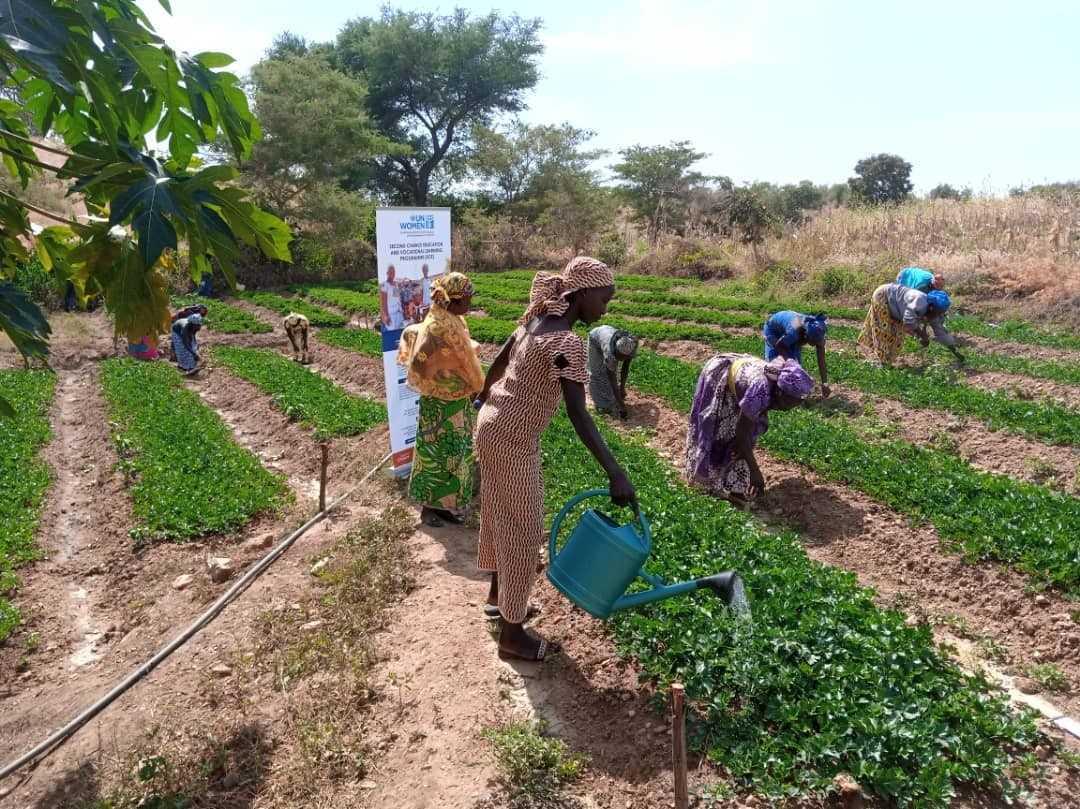
SCE in Cameroon has helped refugee women from the Central African Republic in the East and from Nigeria in the west, and women displaced by the Boko Haram crisis in the Far North and by the socio-political crisis in the Northwest and Southwest.
It has been implemented in collaboration with the Ministry of Women's Empowerment and the Family (MINPROFF) and operated in seven regions:
- Bertua, Eastern Region
- Ngam refugee camp, Adamawa Region
- Mokolo, Mora and Minawao refugee camp, Far North Region
- Yaoundé, Central Region
- Douala, Littoral Region
- Buea, Southwest Region
- Bamenda, Northwest Region
How SCE works
SCE participants are offered training in practical skills that can lead to entrepreneurship and income generation, such as tailoring, animal husbandry and crop farming. After their training, they are provided with a start-up kit so that they can start their own businesses and become self-employed.
As of December 2023, close to 4,000 women have completed professional trainings on tailoring, ICT, animal husbandry, petty trade, fishing and crop farming. They have been provided with start-up kits, enabling them to start their own businesses and become self employed.
Life skills training and support is an important component of the programme, boosting participants' self-confidence and enabling them to carry on and complete their training.
Over 100 young women with incomplete schooling enrolled in formal education and were supported to take GCE exams.
Over 400 women have been provided with ID cards and birth certificates to enable their participation in SCE and wider society.
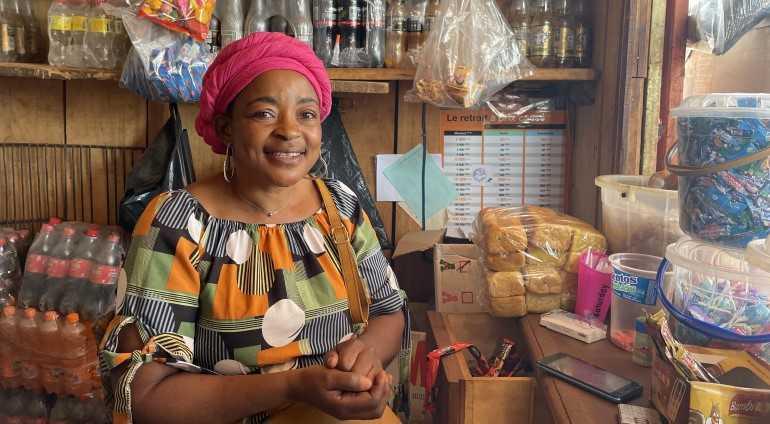
Women Empowerment Hubs
Each programme site in the seven regions had a Women Empowerment Centre. These are one-stop, multi-purpose centres that serve as an entry point to a range of services. They were equipped with computers, sewing machines, film-making equipment, and daycare facilities.
Use of the centres was initially constrained by the lack of electricity and internet. With the support of HP, they were equipped with solar energy systems, internet access and hardware. This enabled many more women to use the facilities and access digital resources.
More than 100 contextualized digital modules have been developed to support digital learning.
Mobile trainings have also been carried out in addition to the ones in the centres, in order to reach participants who live farther away and have limited transport options.
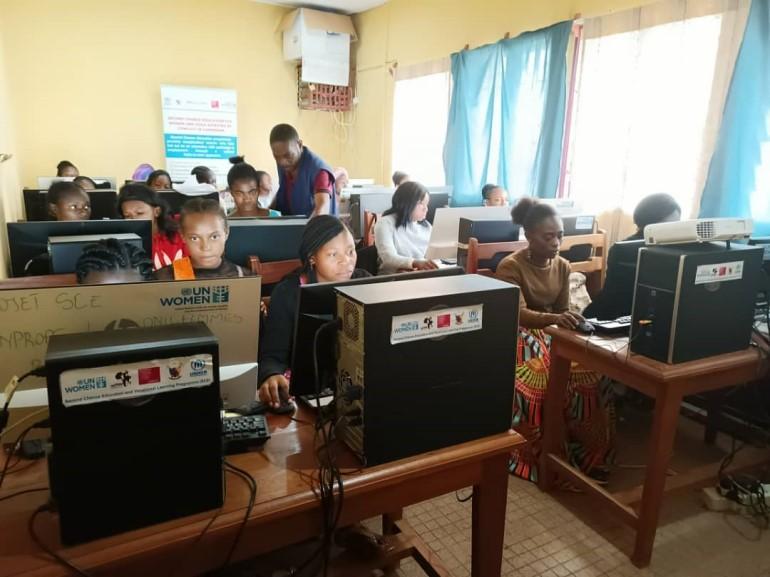
Working to reduce harmful social norms
Crucially, SCE has organized awareness-raising activities in the community and with media about harmful social norms, gender-based violence and the stigma attached to female headed households, displaced women or teenage mothers. These have led to a high level of engagement of men and their championing of women and girls' education. The media have also been highly engaged, especially at local level.
Community based mechanisms, mentoring networks and synergies have been established in all project sites to champion women's education.
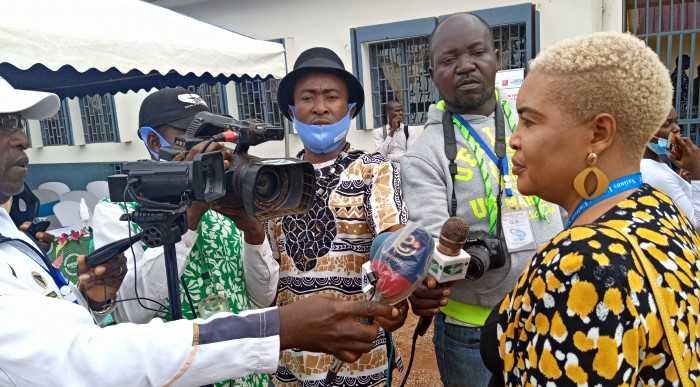
Partnerships
The programme has worked through several partnerships:
- Ministry of Women’s Empowerment and the Family (MINPROFF)
- Ministry of Employment and Vocational Training (MINEFOP)
- African Centre for Environment, Agriculture and Rural Development (ACEARD)
- CAYSTI (Cameroon Youth School Tech Incubator)
- Planet Positive
- Big Steps Outreach Network (BONET)
They have organised and carried out trainings and developed training modules and online content.
Importantly, a partnership with UNHCR enabled the SCE programme to expand to other regions to reach more displaced, refugee and host-community women.
Community partnerships have also been very important in all the project sites, for example with village chiefs and through comunity governance mechanisms. These local relationships have supported the success of SCE activities.
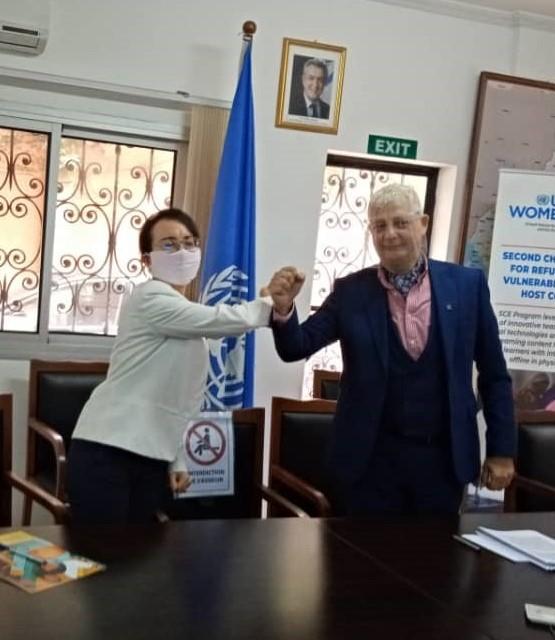
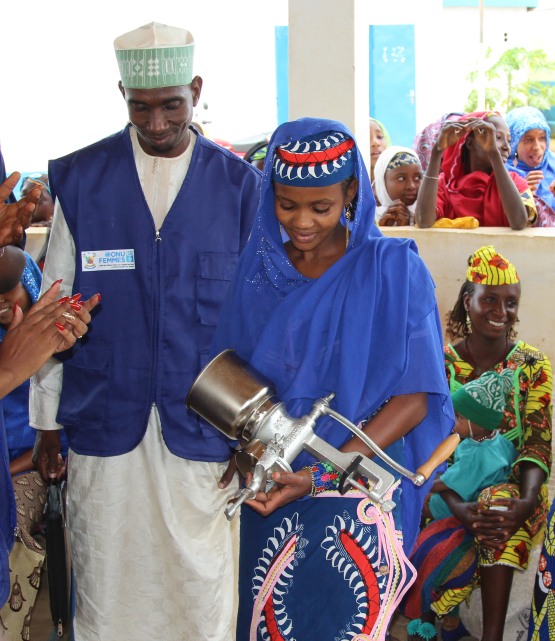
Finding solutions
The context in Cameroon presents many challenges to achieving SCE's objectives.
These include:
- the limited level of education of target beneficiaries
- participants' lack of devices, skiIIs and interest for digitaI learning
- limited job opportunities in the suburbs
- a high demand for the programme but limited resources
- cumbersome procedures for accessing civil status documents.
Thanks to the experience of the pilot phase, the problem-solving approach of our implementing staff and partners, and the knowledge acquired by them, workable solutions have been developed to tackle these challenges.
